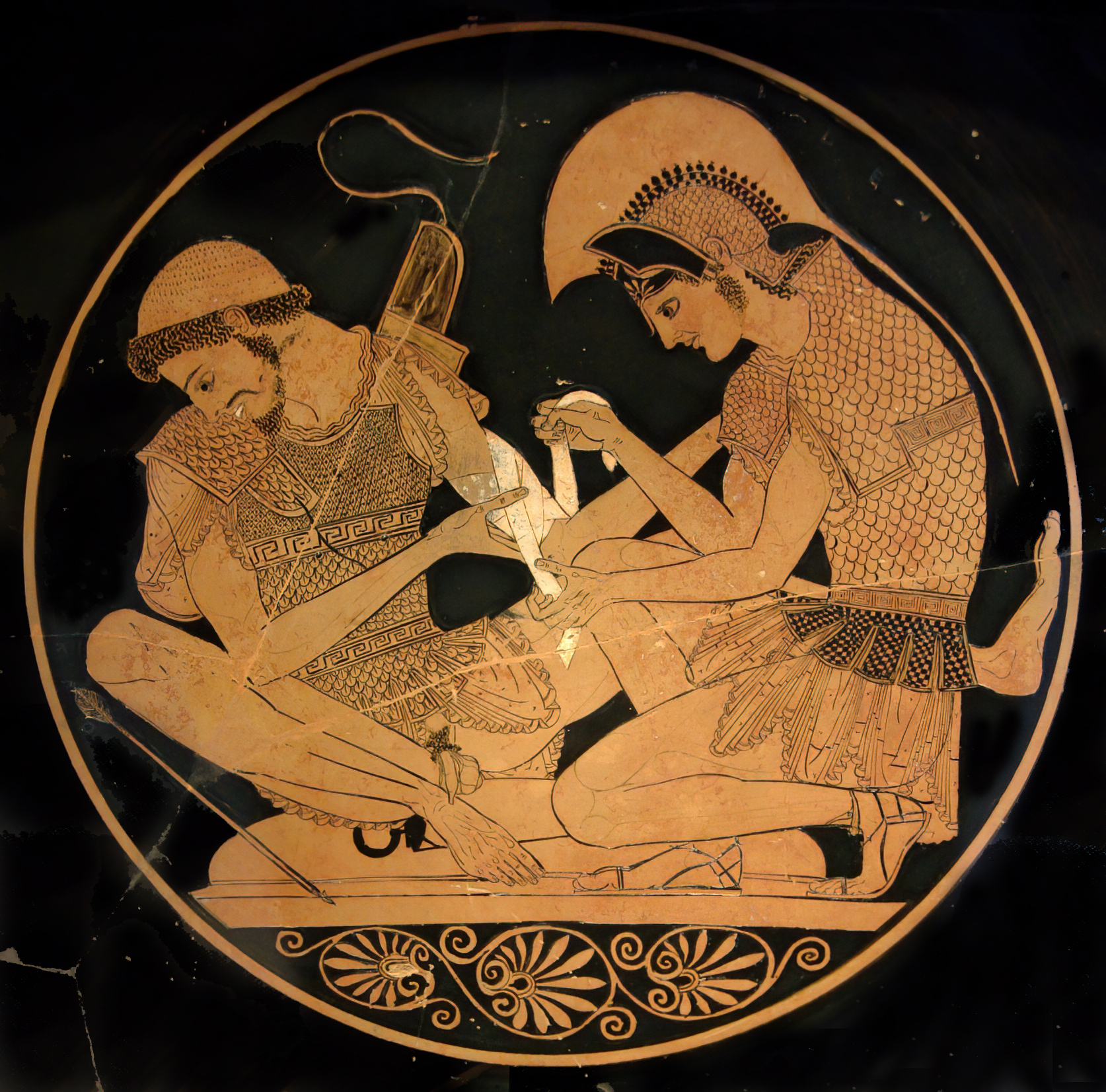Male comradeship is known to exist from the very beginning of the Epic of Gilgamesh when Enkidu is specifically created by Aruru in order to complement Gilgamesh’s might. So the destiny of these two men and their bond can easily be inferred. Their equal strength allows them to be able to count on each other. They will even go on to fight the monster of the forest Humbaba even though the elders of Uruk objected to it.

Gilgamesh and Enkidu <http://s3.amazonaws.com/libapps/accounts/54594/images/gilgamesh-and-enkidu-zeman.jpg>
When Enkidu dies, Gilgamesh is overcome with grief. In the beginning of the epic when Enkidu transforms into a human, he is said to resemble Gilgamesh. Now because of grief, Gilgamesh has grown hairy and beast-like resembling that of Enkidu. The gods forcibly separating Gilgamesh from Enkidu turns Gilgamesh berserk since their bond was so strong. “He paced to and fro, back and forth, / Tearing out and hurling away the locks of his hair, / Ripping off and throwing away his fine clothes like something foul” (8.56-58). He makes the people of Uruk show their respect for Enkidu. However, he does not accept the death of his friend and goes on a quest for immortality. Though achieving immortality was a futile attempt, he learned to accept death and returned to Uruk.
In Homer’s Iliad, Achilles lending his armor to Patroclus shows how much he trusted Patroclus. Since an armor of a warrior is like a name, he is not afraid that Patroclus will ruin his glory. Patroclus, entrusted by Achilles, is killed by Hector who is the mightiest warrior of the Trojan army. His armor can also symbolize their brotherly love because Patroclus might feel he is protected by Achilles during his battle. And Achilles might have felt his armor will protect Patroclus.

Achilles and Patroclus <https://upload.wikimedia.org/wikipedia/commons/b/ba/Akhilleus_Patroklos_Antikensammlung_Berlin_F2278.jpg>
When news of Patroclus’s death reached Achilles, Achilles was overcome with grief. “A mist of black grief enveloped Achilles. / He scooped up fistfuls of sunburnt dust / And poured it on his head, fouling / His beautiful face” (18.23-26). Much like Gilgamesh, Achilles went into a frenzy. He dirtied himself and tumbled around on the ground. He wept as he cannot bear the loss of his friend.
